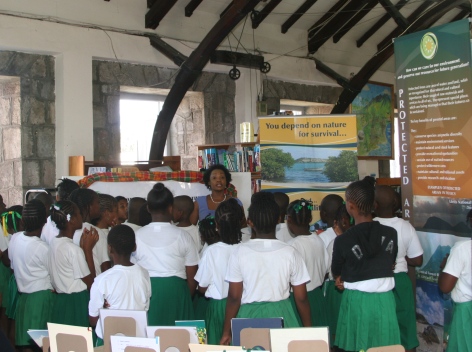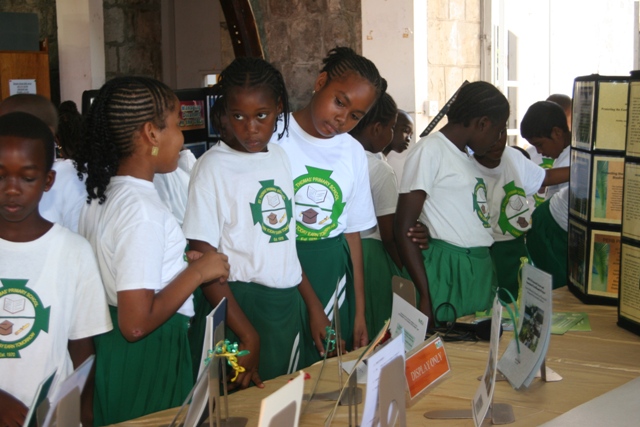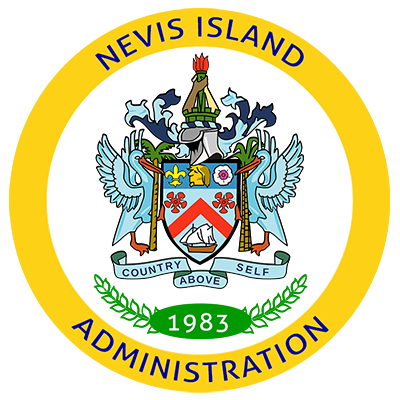Primary School Students Benefit from Environmental Meeting

CHARLESTOWN NEVIS (October 22, 2010) —With questions about biodiversity, global warming and renewable energy, primary school students on Nevis, last Tuesday [Oct. 19th]dialogued with Communication Specialist for the Organisation of Eastern Caribbean States’ [OECS] Protected Areas and Associated Livelihood Project [OPAL] Ms. Tecla Fontenarde at an environmental awareness exhibition at the Charlestown Public Library.
The exhibition, which was geared towards creating public awareness, formed part of activities to mark the 14th annual OECS Ministers of Environment meeting which was held on October 19th and 20th at the Mount Nevis Hotel.
Fontenarde, who was of the view that students played a vital role in environmental management, said it was important to educate them [students] at an early age “because they help to spread the word and create the type of awareness [that is] required across the OECS.”
“What we have found in doing awareness work is that students who have information about any kind of thing, any kind of environmental issue, sometimes become very good spokespeople for change. They are great change agents so they tell their friends, they tell their neighbours and they tell their families: they tell their parents in particular.
The OPAL project, which is funded by the World Bank with assistance from the Organisation of American States [OAS] and the French government, is a $7.5 million project that started in December 2004. It sought to use protected areas to create biodiversity conservation.

“It [the OPAL project] was supposed to be a five year project. We had an original deadline to stop that project at the end of April but we’ve been given an extension until July 2011.
“Some of the components deal with helping to develop national institutions, national frameworks to make sure that protected areas are established and developed and managed well. Some of them deal with capacity building where we strengthen the skills of people in member states who manage protected areas etc and then we do some awareness of protected areas generally in the OECS as well,” Fontenarde said.
